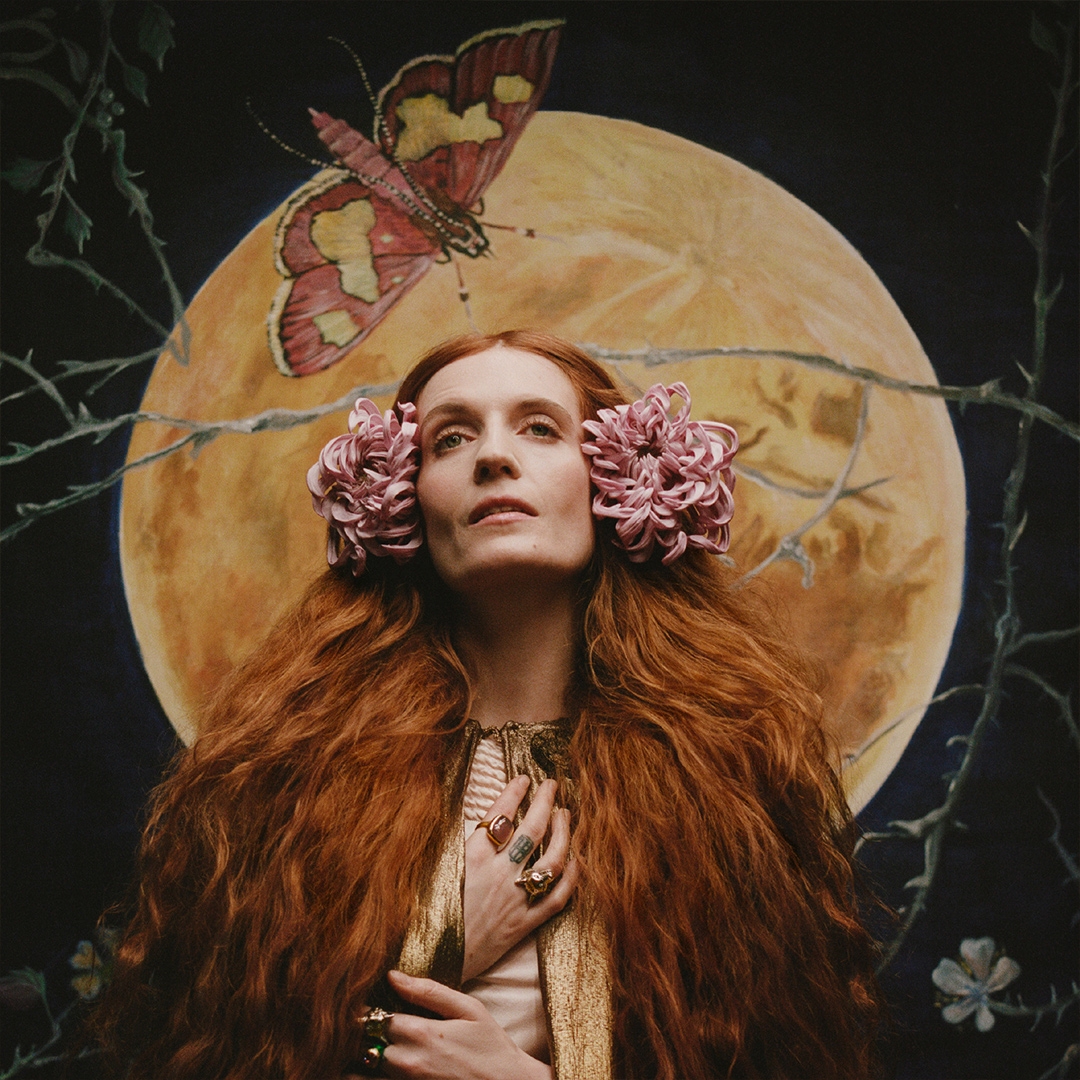
Music Critic Abi Kinsella reviews Dance Fever by Florence + The Machine, describing it as a sublime listening experience
Dance Fever is the perfect, most apt title possible for this absolute tour-de-force of an album from Florence + The Machine. It is a sublime balance between the precision of dance – realised in crystalline vocals and richly layered instrumentation – and the frenzy of a fever, hot and electric and alive. It speaks of human experiences new and old, drawing on antiquity and modernity to paint a heart-wrenchingly, unflinchingly honest picture of what it means to live.
This is an album which will satisfy the purists of Florence + The Machine’s audience. Personally, I would listen to lead vocalist Florence Welch sing the phone book – and indeed buy the signed special edition ten times over. Some of those with more discerning tastes, however, were left dissatisfied with their last album, High as Hope. It was rich with the typical Florence + The Machine melancholy, but perhaps lacking the punctuation of euphoria. Such euphoria is back in full force with Dance Fever, unbridled and gasp-inducing.
“There is something elemental about this integration, as though humanity and music are bleeding together
Here perhaps more than in any of her previous discography, Welch uses her voice as an instrument, every bit as melodic and perfectly tuned as the woodwind and the brass and the strings. There is something elemental about this integration, as though humanity and music are bleeding together.
Dance Fever appears to speak specifically to and of femininity – strong, indelicate femininity. It opens with the proclamation in ‘King’ that ‘I am no mother, / I am no bride, / I am King’ – an assertion that begins tentatively then builds into an empowered expulsion of feeling. ‘Choreomania’ (one of my personal favourites) asks, ‘And you say that rock and roll is dead, / but is that just because it has not been resurrected in your image? / Like if Jesus came back / but in a beautiful dress?’ ‘Girls against God’ warns, ‘Oh God you’re gonna get it, / you’ll be sorry that you messed with us,’ against a chorus of female voices. These questions and statements oppose binary gender roles, where women must reject strength in order to remain feminine. Interestingly, the title of Dream Girl Evil is unpunctuated, where in the song the adjectives are split – ‘Dream Girl, Evil.’ Is the girl both a dream and evil, or does she fit into a binary?
Echoes of Welch’s past discography can be heard throughout the album. ‘Cassandra’ could be a sister song to How Big How Blue How Beautiful’s ‘Delilah’, both character-driven and slow-building, towards a vibrant climax. ‘The Bomb’ has a melancholic, quietly accepting simplicity that would place it comfortably on High as Hope. The marriage of nihilistic lyrics and bouncy instrumentation of ‘Free’ is reminiscent of the playfulness of Lungs.
There are also songs with an entirely new feel. ‘Heaven is Here’ is a grower – jarring at first, even a little unsettling. But after a while the folkish, raw percussion and animalistic vocalisations begin to take on a certain power – ancient and affecting. ‘Daffodil’ is, likewise, percussion-led and commanding. It is intriguing and strange, with a narrative that flits between ritual and realism, blending the two together and creating a setting where the lines between mythology and truth are blurred. It is my favourite song on the album.
“Creating a setting where the lines between mythology and truth are blurred
Two songs, ‘Prayer Factory’ and ‘Restraint’ – are significantly shorter than the other tracks, more like interludes. ‘Prayer Factory’ in particular feels like a missed opportunity for Florence + The Machine. It is haunting and beautiful, yet denied the opportunity to grow into something more. ‘Restraint’ could perhaps have been tagged onto another track – perhaps the final ‘Morning Elvis.’ A delicate yet raw, personal narrative, it speaks of self-doubt and lack of control, sentiments echoed by ‘Restraint’.
The only true weak spot on the album comes, for me, from ‘Back in Town’. It is musically pleasing, but the nuclear sentiment of ‘I came for the pleasure / but I stayed for the pain’ seems overdone and a little cliché, at odds with Welch’s novel narrative abilities.
Dance Fever is frenzied, affecting, precise and euphoric. It is a love letter and an appeal to complex femininity, an ode to her previous work and a sublime listening experience. It is honest and raw and intricate. It is utterly brilliant.
Rating: 10/10
You Might Also Like:
Comments